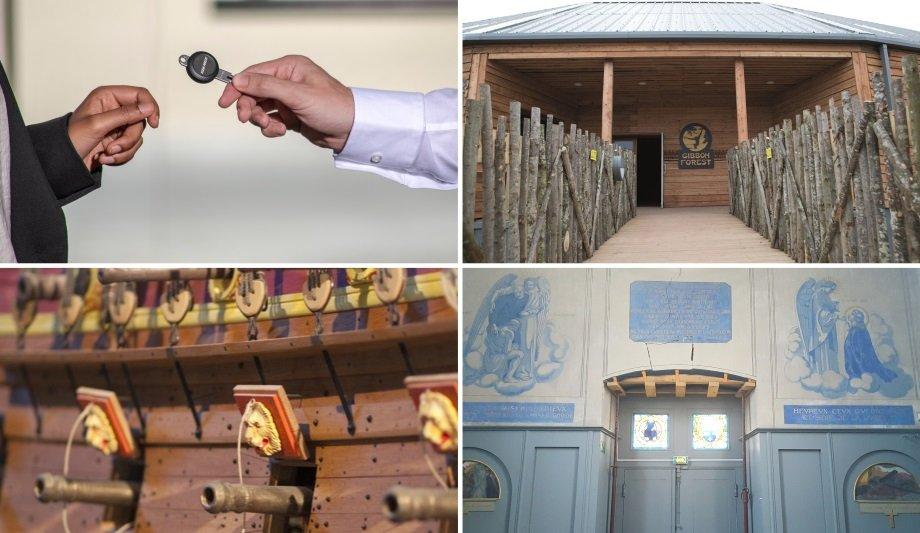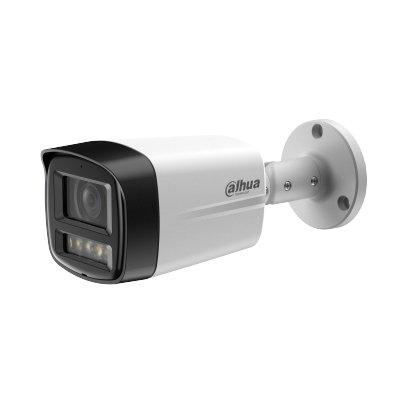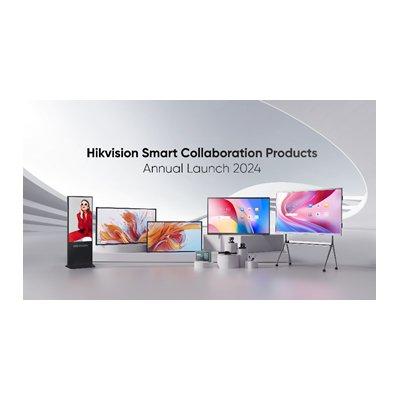Places of leisure, where people spend their downtime, are public by design. Unlike a bank vault or power plant, they actively invite visitors. They can’t just lock be locked down and hope that no one turns up.
Equally, to ensure user and property safety, access must not be a free for all. Managing risk, separating authorised from unauthorised people and locations, is part of every site manager’s daily routine. Intelligent locking makes this workload a whole lot easier.
Intelligent locking solutions
Intelligent keys combine the powerful features of electronic access control with the convenience and familiarity of mechanical keys. In hugely diverse leisure settings across Europe, they already help managers do more with less.
The right access solution can help system administrators do it safely without putting a burden on those responsible for everyone’s security.
Controlling access to outdoor sites and visitor attractions
Robust, battery-powered locking, backed by intuitive admin software can enable access from anywhere
Obviously, for many leisure attractions, wired electronic security is not an option. Locations may be remote, far beyond the reach of mains electricity. Assets themselves may be outside. Thankfully, cabling is not essential for effective intelligent access control.
Robust, battery-powered locking, backed by intuitive admin software can enable access from anywhere, thereby matching or exceeding the functionality of traditional wired access control. Padlocks built to withstand climate extremes integrate within the system exactly like standard interior locks.
Intelligent electronic key systems
Intelligent electronic key systems are budget friendly. Making the switch from mechanical security is not an all-or-nothing decision. The best intelligent key systems can be rolled out gradually, as needs evolve and budgets allow. For example, the Llyn Brenig Reservoir and Visitor Centre in Wales attract tens of thousands of tourists every year.
Both mechanical and electromechanical locking solutions protect a site, which houses critical infrastructure and watersports facilities, with disparate security needs. Here, electromechanical locking brings long-term cost savings to site owners Welsh Water, because locks no longer need to be changed, when keys are lost. Permissions are simply deleted from the system software.
Upgrading zoo access control system
In 2015, Twycross Zoo launched a £55 million, two-decade development plan. High on the agenda was a new intelligent key solution to replace a mechanical master-key system which was labour-intensive to administer. The new system’s flexibility has put zoo security managers in full control of their site. Only staff with the necessary authority and training can access animal enclosures.
It’s simple for system administrators to issue time-defined user keys. These can permit vets or zookeepers access to enclosures for a specific time period outside regular hours, for example, in an emergency. When the period expires, the key no longer works and site integrity is automatically restored.
Access control in the museum sector
Securing museums, open spaces with priceless contents presents one of security’s biggest challenges
When Edvard Munch’s painting ‘The Scream’, was stolen from an Oslo museum in 1994, thieves left a note which read, ‘Thanks for the poor security.’ Securing museums, open spaces with priceless contents presents one of security’s biggest challenges. Around 50,000 artworks are stolen every year, according to some estimates.
Adding further complexity, many museums are located within historic properties. The building itself may be integral to the attraction and come with strict heritage protections. Any new locking installation must make minimal mess. For this reason, wireless is increasingly the preferred choice.
Wireless access systems
Wireless access systems based on robust, key-operated locking, rather than cards and other keyless credentials, combine a familiar technology (the metal key) with the intelligence to keep staff and collections safe. Carrying one programmable key to be able to open doors, cabinets, windows and padlocks makes the security team’s rounds easier. It also minimises the number of keys in circulation with obvious security benefits.
Companion software makes key tracking straightforward, with administrators always knowing who exactly is carrying credentials and they can refine or amend those permissions quickly, and order a full audit trail on demand. And these locks are discreet enough to maintain the property’s appearance.
Protecting high-value assets and exhibits
London’s Design Museum needed access control designed to protect high-value assets and exhibits. Devices here protect a contemporary site with three galleries, a restaurant/café and an events space, with 100 permanent staff and hundreds (sometimes thousands) of daily visitors. The building has multiple door sizes and must meet British Standards compliance.
Electromechanical locks now control access through 56 doors, forming part of a security ecosystem, which incorporates traditional mechanical locks as well. Using intuitive management software, security managers ensure every staff member accesses only the right areas.
CLIQ from ASSA ABLOY installed at museum
The system the Design Museum chose, CLIQ from ASSA ABLOY, also enables integration with third-party cloud-based solutions
Contractors are issued with temporary programmable keys, which saves time formerly wasted escorting them around the building. The system the Design Museum chose, CLIQ from ASSA ABLOY, also enables integration with third-party cloud-based solutions, for control via a single, central management interface.
The delicate balance between protecting a precious building and guarding its contents sets a major challenge. Security and access control must be ‘subtle, but ever present,’ according to one former moderator of the Museum Security Network. Invasive installation, showy or inappropriately designed devices and components cannot be considered.
CLIQ access control technology
This was the checklist facing France’s Musée Maurice Denis, the museum is inside a listed 17th century monument, so they turned to CLIQ access control technology for a solution.
Drawing on extensive experience in the heritage sector, ASSA ABLOY delivered class-leading security without disrupting the building aesthetic. Installation was easy and wire-free, because encrypted electronics inside CLIQ locks are powered by the standard batteries inside every programmable key. No further power supply is needed at the door.
Robust, hard-wearing cylinders and padlocks installed
Around 70 robust, hard-wearing cylinders and padlocks now secure doors and windows inside, and outside the main building with waterproof padlocks protecting CCTV camera that are housed on the exterior. Every employee receives access to relevant areas via a single CLIQ key, which administrators program with only the appropriate permissions.
Insurance compliance is another major concern in the heritage sector. Indeed, insurers for 17th century warship, Vasa demand Sweden’s highest level of locking, Class 3. Yet, the Vasamuseet’s access system must also allow 1.2 million annual visitors to move around freely, while keeping exhibits safe.
CLIQ Remote electromechanical technology
Around 700 interior door cylinders were equipped with CLIQ Remote electromechanical technology
To upgrade an existing mechanical system, around 700 interior door cylinders were equipped with CLIQ Remote electromechanical technology. Museum staff used to carry heavy chains with ten or more keys.
Now, facility managers can amend the access rights of everyone’s single CLIQ key at any time, even remotely, using the CLIQ Web Manager. It’s easy to issue contractors such as carpenters with access rights scheduled to end automatically as soon as their work is complete.
Security for shopping and indoor leisure sites
According to one study completed two decades ago, people spend 87% of their time indoors. The number is probably higher now and includes a huge chunk of everyone’s leisure time. Large retail multiplexes like Festival Place in the UK are a popular destination.
Here, over 170 shops, a cinema, sports centre and restaurants have an ever-changing roster of permanent staff, cleaners and out-of-hours contractors. Every person requires secure entry on demand. The public also needs open access for 18 hours every day.
Benefit of CLIQ electromechanical cylinders
Yet, a single lost mechanical key could become a security problem for all users and tenants. Installing 100 CLIQ electromechanical cylinders drastically cut the burden of mechanical key management. Now, cleaners and maintenance workers carry an intelligent key, which unlocks specific doors for a pre-defined time period.
Using simple online admin software, site managers can immediately de-authorise and reissue a lost key or amend any key’s permissions. Generating a comprehensive audit trail, who accessed which lock and when, takes a couple of mouse clicks.
Electronics-inside CLIQ locks
CLIQ also cuts Festival Place operational costs. The electronics-inside CLIQ locks are powered by the standard battery inside every key, not mains electricity. Installation was wireless, a huge saving on potentially expensive electrical work.
At Festival Place and wherever we gather to enjoy leisure, indoors or outside, CLIQ enables easy access control for all openings with just a simple, single, programmable key.



















